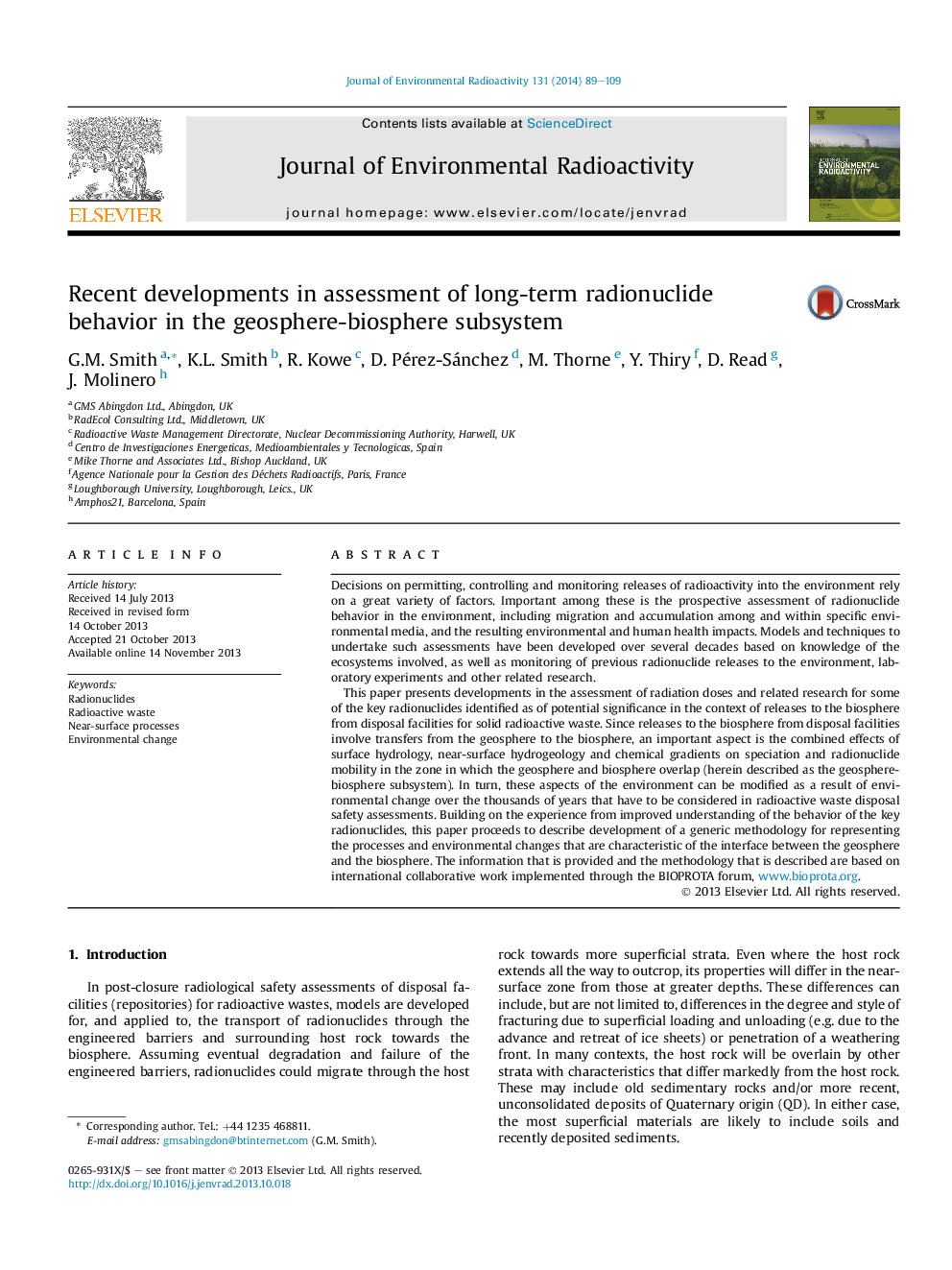| Article ID | Journal | Published Year | Pages | File Type |
|---|---|---|---|---|
| 1738053 | Journal of Environmental Radioactivity | 2014 | 21 Pages |
Abstract
This paper presents developments in the assessment of radiation doses and related research for some of the key radionuclides identified as of potential significance in the context of releases to the biosphere from disposal facilities for solid radioactive waste. Since releases to the biosphere from disposal facilities involve transfers from the geosphere to the biosphere, an important aspect is the combined effects of surface hydrology, near-surface hydrogeology and chemical gradients on speciation and radionuclide mobility in the zone in which the geosphere and biosphere overlap (herein described as the geosphere-biosphere subsystem). In turn, these aspects of the environment can be modified as a result of environmental change over the thousands of years that have to be considered in radioactive waste disposal safety assessments. Building on the experience from improved understanding of the behavior of the key radionuclides, this paper proceeds to describe development of a generic methodology for representing the processes and environmental changes that are characteristic of the interface between the geosphere and the biosphere. The information that is provided and the methodology that is described are based on international collaborative work implemented through the BIOPROTA forum, www.bioprota.org.
Related Topics
Physical Sciences and Engineering
Energy
Nuclear Energy and Engineering
Authors
G.M. Smith, K.L. Smith, R. Kowe, D. Pérez-Sánchez, M. Thorne, Y. Thiry, D. Read, J. Molinero,
